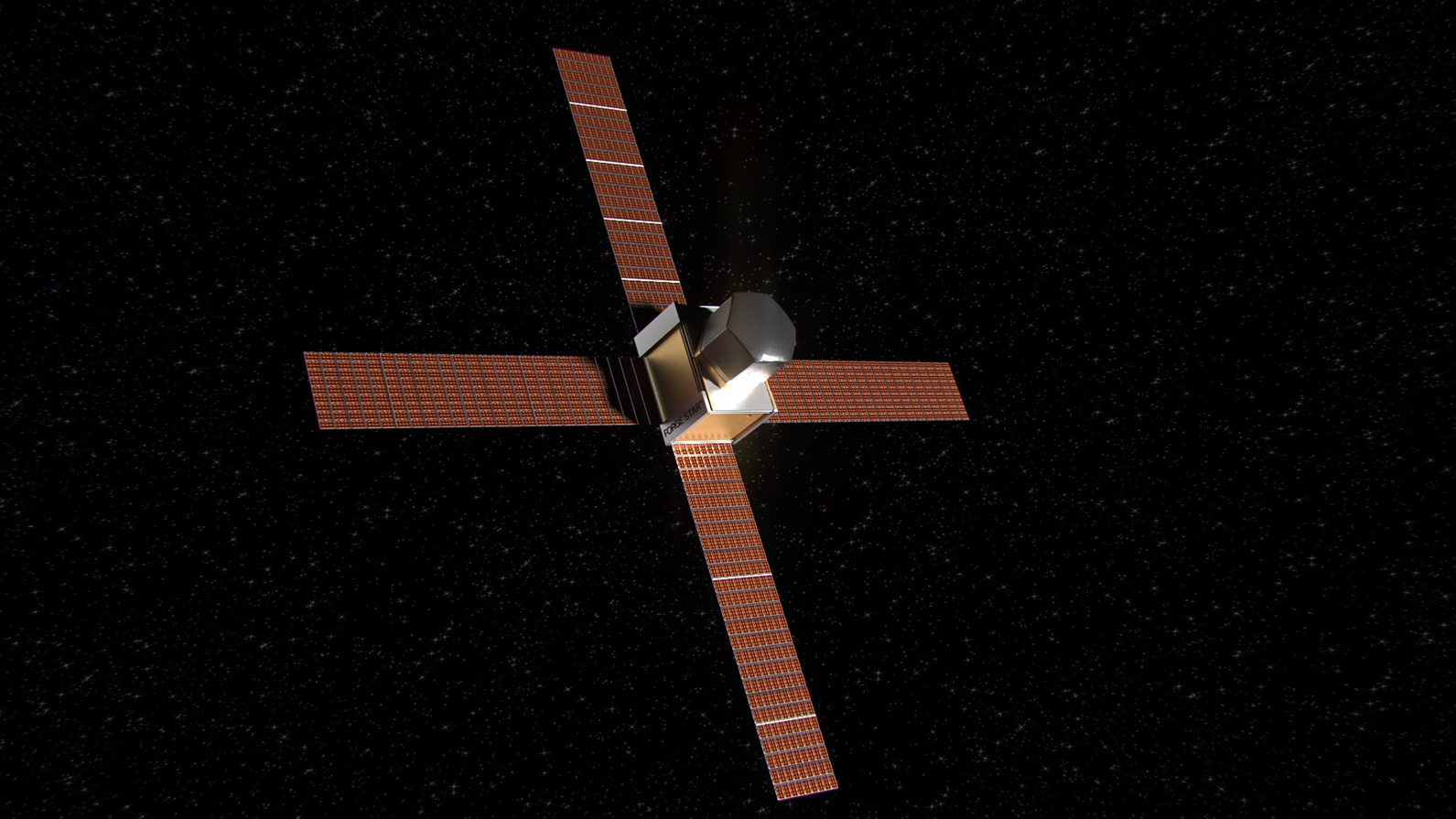Blue Skies Space releases latest renderings of Twinkle spacecraft
 The Twinkle satellite, the first in a series from Blue Skies Space, aims to revolutionise exoplanet and solar system science by accelerating the provision of scientific data to its members.
The Twinkle satellite, the first in a series from Blue Skies Space, aims to revolutionise exoplanet and solar system science by accelerating the provision of scientific data to its members.
Once launched into low-earth orbit, the golden-hued satellite will deliver visible and infrared spectroscopy of thousands of targets, enabling Twinkle members to produce transformative research on exoplanet atmospheres, solar system objects, stars, and stellar discs.
The structured science surveys will operate at a large scale, providing more than 70,000 hours of data observations from 1000’s of objects.
Through the Twinkle mission, Blue Skies Space is replicating the successful telecommunications operator model, where highly experienced satellite manufacturers are contracted to build the satellite to unique specifications.
Phillip Windred, COO of Blue Skies Space Limited, said: “By working with our industrial partner, Airbus Space and Defence, we can re-use their high heritage, high performance platforms to speed up the construction of science satellites.”
The commercial model increases the availability of data for a broader range of space scientists from early career astronomers through to eminent international experts.
Space scientists from around the globe, that sign up for the simple Twinkle subscription membership will directly shape the mission’s science agenda through the international collaborative programme. Uniquely, no proposal or selection process is required to join the mission.
Dr Marcell Tessenyi, chief executive officer added: “Blue Skies Space’s agile and cost-effective satellites are designed to be efficiently constructed to ensure we can make high quality data available to scientists for their research. By working closely with the participating scientists, we are able to shape the access model and data products in the most beneficial way to the community.”
Fourteen international institutions from Australia, Canada, China, Europe, Japan, USA and the UK are already actively working to shape and design the mission’s science programme. This growing membership recognises the benefits of early involvement in the science development, and the subsequent opportunities to maximise the high-quality data as it is generated.
“Our ‘space-science-as-a-service’ option provides unimpeded access to brand new exoplanet and solar system data for research institutions around the world. Twinkle is open to scientists of any background and career stage and aims to enhance and support the career paths of many astronomers. We are genuinely excited by the possibilities this offering is bringing to the international scientific community,” concluded Tessenyi.
There are two ways to access Twinkle – through its collaborative multi-year survey programmes or through the hourly dedicated use of the telescope.
About Twinkle
Twinkle is the first in a new class of science satellites that will deliver ground-breaking data to astronomers worldwide. The seven-year space mission, launching in 2024, will provide scientists with greater insights into the composition of exoplanet atmospheres, solar system objects, stars and stellar discs. The satellite is based on a high-heritage Airbus Defence and Space platform and will carry a 0.45 m telescope with a visible to infrared spectrometer providing simultaneous wavelength coverage (0.5–4.5μm), enabling a deeper understanding of worlds outside and within our solar system. Twinkle’s science programme is delivered through a growing international collaboration of scientists who will gain access to the massive data set from the observation of 1000’s of objects during the mission’s lifetime. Twinkle is the first commercial satellite being launched by UK-headquartered Blue Skies Space Ltd.
About Blue Skies Space
Blue Skies Space is an independent company that operates satellites to support the global research community. Through its fleet of rapidly delivered space and earth observational satellites, it optimises an innovative “space-science-as-a-service” subscription model, to help scientists answer some of the greatest questions of humankind.The structured science surveys will operate at a large scale, providing more than 70,000 hours of data observations from 1000’s of objects.
Through the Twinkle mission, Blue Skies Space is replicating the successful telecommunications operator model, where highly experienced satellite manufacturers are contracted to build the satellite to unique specifications.














